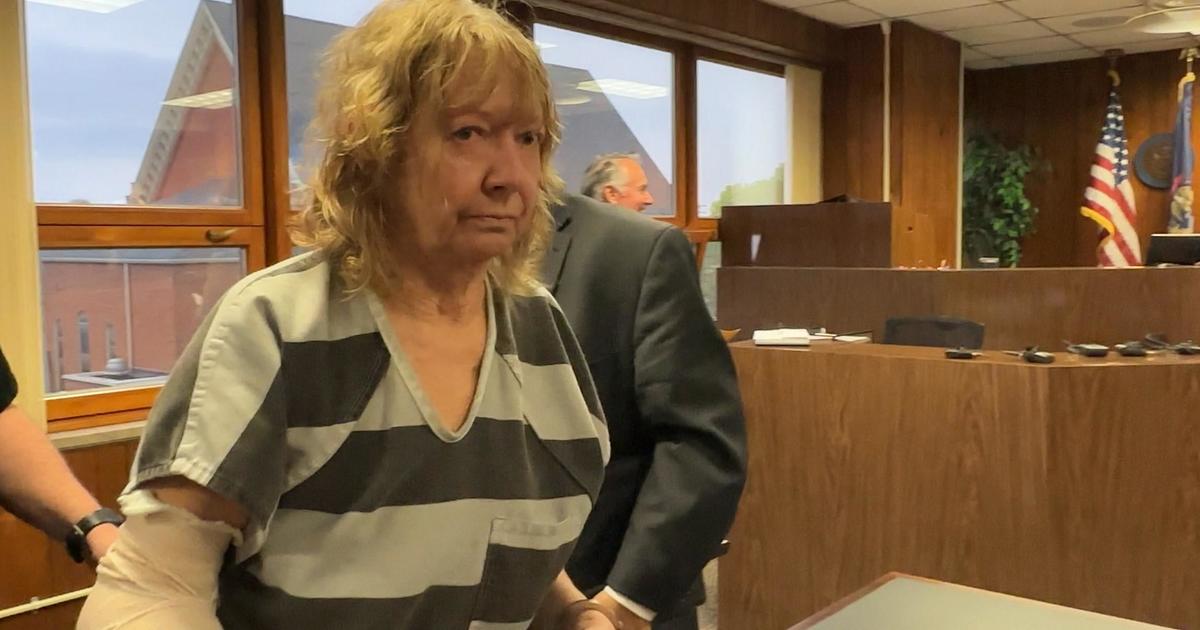Grieving Mom Grateful For Cell Phone Legislation
By JOHN FLESHER, Associated Press
TRAVERSE CITY (AP) - On a winter morning in 2010, Kelsey Dawn Raffaele was driving home from a friend's house and chatting on her cell phone when she crashed, ending her life at age 17 - and setting her devastated mother on a mission to spare others the same fate.
Bonnie Raffaele won a bittersweet victory when the Michigan Legislature passed a bill prohibiting young novice drivers from using a cell phone while behind the wheel. The measure, which at one point appeared in trouble because of opposition from House Speaker Jase Bolger, won final approval a few hours before lawmakers adjourned this month. Thirty-two states have similar laws.
Gov. Rick Snyder said Friday he was "generally supportive" of what officially would be known as "Kelsey's Law."
"I will most likely end up signing it. The concept is a good one," Snyder said during a year-end news conference, noting that he also has a 16-year-old daughter named Kelsey, who got her license last summer.
The next step, Raffaele said, will be spreading the word to parents, police, teachers and anyone else in a position to make a difference - especially teens themselves.
"I'm a firm believer that nobody should be on the phone when they're driving, but my big concern is the kids," said Raffaele, 48, who lives in the Upper Peninsula town of Sault Ste. Marie. "They're the most vulnerable, the most inexperienced."
The bill applies to holders of Level 1 licenses, who must be accompanied by a parent, guardian or another licensed driver at least 21 years old, and those with Level 2 licenses, who can drive alone with some limits on hours and carrying young passengers. It exempts Level 3 drivers, who have full privileges.
Sgt. Chris Hawkins, who handles legislative issues for the Michigan State Police, acknowledged patrol officers can't tell the status of a passing motorist simply by glancing through the car window - although the bill allows them to check anyone they suspect of violating the ban. Under most circumstances, they will enforce the law as a "secondary measure" when a driver has been stopped for another reason, he said.
"We'll see someone speeding by us and notice they're on their cell phone," Hawkins said. "We'll pull them over, and if they've got a Level 1 or 2 license, they'll get the additional citation."
The fine can reach $100 plus court costs - and the driver's probationary license period can be lengthened. But police hope the deterrent effect will make violations a rarity, Hawkins said, just as with the state's ban on sending text messages while driving, which took effect in 2010.
Kelsey was a Level 2 driver when she crashed. She had just passed a slower-moving vehicle on a slippery road near her high school and went too far to the right, clipping a snow bank, her mother said. She apparently overcompensated by jerking the wheel to the left and veered into an oncoming car.
"She was on the phone. It was a classic case of a distracted driver," said Bonnie Raffaele, a computer technician for the Eastern Upper Peninsula Intermediate School District.
Still grieving a year later, she chatted with a friend who was a state police officer. "I guess I was at the angry point. I said, `Something has to be done. I have to get to the kids. They have to pay attention and stop this."'
With her husband, Ron, Raffaele created a website devoted to warning teens of the danger. She hit the road, speaking at schools as far away as Grand Rapids. And she enlisted state Sen. Howard Walker, a Traverse City Republican whose district includes the Sault Ste. Marie area, to sponsor the cell phone legislation.
"It gives parents a little added weight because they can tell a child during that probationary period, `Don't talk on your cell phone and it's not just a suggestion - it's now the law,"' Walker said.
The Senate approved the bill in March, although some lawmakers worried it was a "slippery slope" measure that could lead to banning cell phone use for all drivers. Walker said he assured colleagues that wasn't the plan, even though some might consider it a good idea. An experienced driver will have better judgment than a new one about when it's safe to have a phone conversation, he said.
AAA Michigan, which backed the bill, said numerous studies have shown that youths are more likely to be involved in crashes involving cell phones than older, seasoned drivers.
The measure plodded through the House. Bolger, a Republican from Marshall, regarded it as an example of well-meaning efforts to "legislate behaviors that are best dealt with based on common sense and the personal sense of responsibility," spokesman Ari Adler said. "People are eating and drinking all the time in cars; that can be a distraction and a hazard. People are using all kind of technology in cars - GPS units, sophisticated entertainment."
It appeared the measure might remain bottled up in the Transportation Committee. But because it had widespread support among rank-and-file members, Bolger agreed to bring it to the floor for a vote on the session's frantic, final night. It passed, 74-33.
"I am so excited, so relieved," said a grateful Raffaele, who had testified before the committee and handed out literature to House members.
While savoring the outcome, she continues to struggle with the loss of Kelsey, whose twin sister, Courtney, is a student at Northern Michigan University in Marquette.
"To this day, I find myself thinking she's still at a friend's house," Raffaele said. "It's just ... disbelief. You just never expect to bury your child."
Associated Press writer Ed White in Detroit contributed to this story.
(© Copyright 2012 The Associated Press. All Rights Reserved. This material may not be published, broadcast, rewritten or redistributed.)



